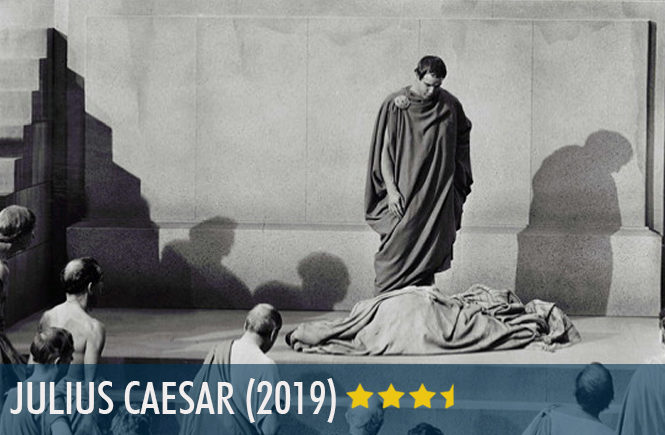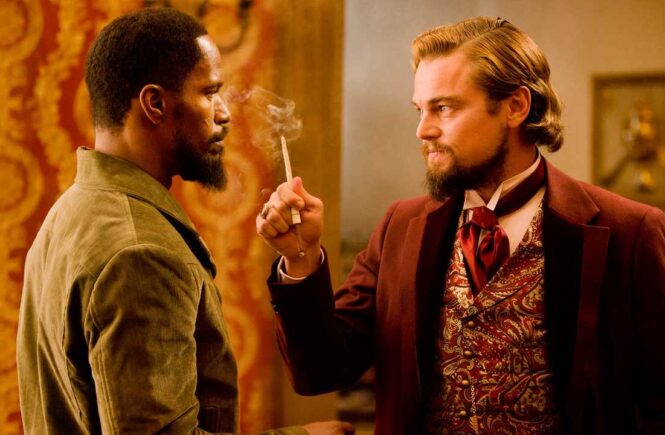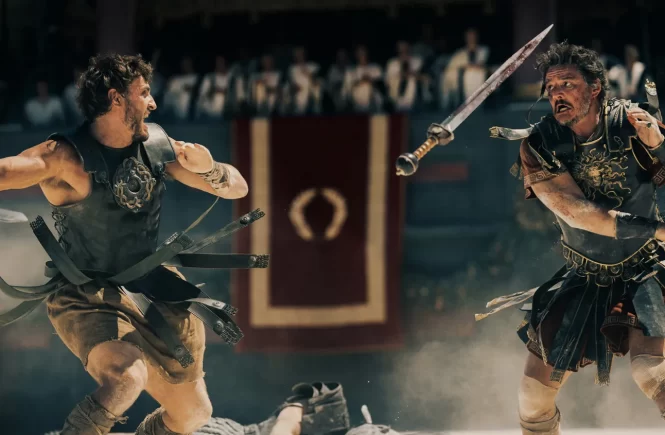Julius Caesar directed by Jospeh L. Mankiewicz is a fantastic adaptation of the play Julius Caesar by William Shakespeare. I was blown away by Mankiewicz’s direction, the production and set-design peices, and the tremendously beautiful score by Miklos Rozsa. In-fact my first encounter with this film, as well as the play Julius Caesar, was through Roza’s score. Listening to it I felt overwhelmed by the sense of grandeur mixed with ominous and melancholy sounds. It beautifully captured everything I would come to love from the story of Julius Caesar, and I think it’s one of his best scores.
Though reading Shakespeare’s play has it’s benefits, it also lacks the depth that an actor can give the words through his facial expressions. Watching this filmic adaptation of Julius Caesar, with it’s slew of talented actors and actresses, really gave me what I wanted in terms of greater understanding how these characters felt. Especially Marlon Brando, who stole the show with his Marc Antony. Words cannot describe how good he is in this role, he was perfectly cast. His eyes gave so much power to the character, you simply could not look away. The scene where Antony speaks to the people of Rome over Caesar’s body is one of the finest moments of acting I have ever seen. James Mason as Brutus was also perfectly cast, his figure and tense looks perfectly captured the character of Brutus for me, and there was not a moment where I felt as though I was seeing an actor.
A lot of the realism that this film has comes from the outstanding production design. The set-pieces look and feel real, so do the outfits of the characters, everything made me feel like I was in Rome. The scenes at the pulpit after Caesar’s death, with hordes of people tumbling over themselves to hear of what has happened, were majestic as well. There is such a sense of awe that you get watching so many people in one scene clamoring over each other, and it perfectly conveyed the moment. Furthermore, the production design and grand wide shots really help distinguish this filmic version from a theater adaption, which would be hard pressed to convey a grand feeling like the one I sensed while watching this.
Manikiewicz’s also makes some clever decisions with the play. There is an especially nice moment during Antony’s speech over Caesar’s body where the camera cuts to the soothsayer that at the beginning of the film had prophesied the ides of march to Caesar, it sent chills down my spine and added to the dread of what was happening and what was to come.
The only part of the film that I thought could have been handled better was the final battle scenes. Much of the film up to this point could have been, more or less, captured on a stage, it was meant to be anyway. But the direction and production design really make it stand a class apart from any theater production. Yet it was the final battle scene that was something that would’ve really set this film apart from anything a theater production could do, yet it doesn’t feel that way. For one, the whole battle of Phillipi is reduced to an ambush by Antony and Octavius, which just seemed lazy to me considering what a film like this could have done with that battle. And though we have a nice wide shot of a row of soldiers marching, I never got the sense that this was any battle.
Nonetheless though this is a fantastic adaptation of Julius Caesar, elevated by top-notch performances and production design, with Marlon Brando’s Marc Antony speech being a scene that I believe will stand the test of time.
Ever since I was a kid I loved and was fascinated by Julius Caesar, what transpired with him, and Roman times. The play by William Shakespeare is one of my favorite plays by him and also one of my favorite stories about Julius Caesar because of how well it captured, not only him, but the time and those around him. Usually in other stories about him, Caesar’s presence greatly overshadows any other, but in this play it feels like just the opposite, where you are really able to see Caesar for the human that he was, be it a great one, and the nature that drove the people around him to act the way they did. It is shocking to me that even 420 years later, not only does this play stand the test of time but far exceeds the stories that are being churned out even now. Here is a great play, a fantastic adaptation, and a man and time that still captures our imaginations.




